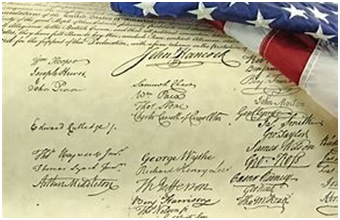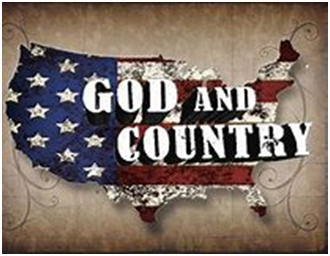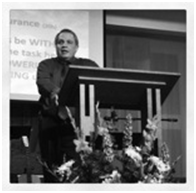[vc_row][vc_column][vc_single_image image=”949″ img_size=”full” alignment=”center”][vc_custom_heading text=”“A Piece of My Mind”” font_container=”tag:h1|font_size:50px|text_align:center|color:%232633ef” google_fonts=”font_family:Bitter%3Aregular%2Citalic%2C700|font_style:700%20bold%20regular%3A700%3Anormal”][vc_custom_heading text=”July-August 2018 Newsletter” font_container=”tag:h1|font_size:30px|text_align:center|color:%232633ef” google_fonts=”font_family:Bitter%3Aregular%2Citalic%2C700|font_style:400%20regular%3A400%3Anormal”][/vc_column][/vc_row][vc_row][vc_column width=”2/3″][vc_column_text]
Advancing Christian Faith and Values,
Defending Religious Liberty for All,
Supporting Civility and the Common Good
through Preaching, Teaching, Writing, Activism and Reasoned Conversations
www.donaldshoemakerministries.com[/vc_column_text][/vc_column][vc_column width=”1/3″][vc_single_image image=”687″ img_size=”full” alignment=”center”][/vc_column][/vc_row][vc_row][vc_column width=”1/2″][vc_column_text] [/vc_column_text][/vc_column][vc_column width=”1/2″][vc_column_text]
[/vc_column_text][/vc_column][vc_column width=”1/2″][vc_column_text]
A Valuable Independence Day thought…
“In a modern civilization, all three – religion, democracy and international good faith – complement and support each other.”
– Franklin D. Roosevelt
[/vc_column_text][/vc_column][/vc_row][vc_row][vc_column][vc_column_text]
 President Franklin Roosevelt’s memorable “State of the Union” speech in 1939 showed great foresight on the looming danger to religion, democracy and international good faith.
President Franklin Roosevelt’s memorable “State of the Union” speech in 1939 showed great foresight on the looming danger to religion, democracy and international good faith.
Storms from abroad directly challenge three institutions indispensable to Americans, now as always. The first is religion. It is the source of the other two-democracy and international good faith.
Religion, by teaching man his relationship to God, gives the individual a sense of his own dignity and teaches him to respect himself by respecting his neighbors.
Democracy, the practice of self-government, is a covenant among free men to respect the rights and liberties of their fellows.
International good faith, a sister of democracy, springs from the will of civilized nations of men to respect the rights and liberties of other nations of men.
In a modern civilization, all three — religion, democracy and international good faith — complement and support each other.
Where freedom of religion has been attacked, the attack has come from sources opposed to democracy. Where democracy has been overthrown, the spirit of free worship has disappeared. And where religion and democracy have vanished, good faith and reason in international affairs have given way to strident ambition and brute force.
An ordering of society which relegates religion, democracy and good faith among nations to the background can find no place within it for the ideals of the Prince of Peace. The United States rejects such an ordering, and retains its ancient faith.
[/vc_column_text][/vc_column][/vc_row][vc_row][vc_column][vc_column_text]
Bible Insight – “Filled with the Holy Spirit” (Part 2) What the Bible DOES Say!
“Do not get drunk with wine, for that is debauchery, but be filled with the Spirit, addressing one another in psalms and hymns and spiritual songs, singing and making melody to the Lord with your heart, giving thanks always and for everything to God the Father in the name of our Lord Jesus Christ, submitting to one another out of reverence for Christ.” – Ephesians 5:18-21 (NIV)
In the first part of “Filled with the Holy Spirit” (June Newsletter) we considered what we quite surprisingly DO NOT FIND at all in the Bible.
1. Nowhere in the New Testament does anyone SEEK to be filled with the Holy Spirit.
2. Nowhere in the New Testament does anyone PRAY to be filled with the Holy Spirit.
3. Nowhere in the New Testament does anyone FOLLOW STEPS to be filled with the Holy Spirit.
4. Nowhere in the New Testament does anyone TESTIFY to being filled with the Holy Spirit.
Let’s lay these aside and look positively now at what the Bible DOES say. First we note that God’s Holy Spirit is a personal being, not a liquid. So, being “filled” is a metaphor for being greatly influenced or controlled by the Spirit.
1. In the Old Testament, the Spirit’s filling was SELECTIVE as to person and purpose.
Not every believer in God was filled with God’s Spirit. The filling of the Spirit provided the empowerment and ability to certain people God chose to do the tasks God wanted done.
At the time Israel made a Tabernacle for worship (Exodus 35-40), a worker named Bazalel was “filled…with the Spirit of God, with wisdom, with understanding, with knowledge and with all kinds of skills—to make artistic designs for work in gold, silver and bronze, to cut and set stones, to work in wood and to engage in all kinds of artistic crafts.” Here we learn “natural talents” can be invigorated by God’s Spirit and invested into God’s service.
God’s Spirit came upon seventy rulers of Israel who assisted Moses (Numbers 11:25). The Spirit came on Israel’s judges and prophets and military leaders and kings (not on all, of course, but on many).
Sometimes the person God empowered to do the needed task was quite unsavory, to say the least. Samson, Israel’s “Incredible Hulk”, is hardly our model of a man to follow (Judges 13-17). King Saul was a sore failure. And God’s Spirit came on a crooked prophet named Balaam (Numbers 24:2).
2. The prophetic hope was for a UNIVERSAL OUTPOURING of God’s Spirit. This hope was realized on the Day of Pentecost after Jesus’ resurrection and return to his Father in heaven.
Unlike the occasional, selective empowerment of the Spirit found in the Old Testament, the OT itself prophesied a universal outpouring of the Spirit (Joel 2:28-29). Gentiles as well as Jews, women and men, young and old, servants and free men—all share in this outpouring on Pentecost and after. Empowered by the Spirit, we ALL (not just prophets, missionaries and pastors) are called to be ministers. The Holy Spirit is the Great Equalizer!
3. The “Filling of the Holy Spirit” seems, in my opinion, to have TWO DIMENSIONS.
The TASK dimension. In the Gospel of Luke and the Book of Acts there is a very common infilling of the Holy Spirit that empowers certain people to do the task God wants done (Luke 1:15, 41, 67; 2:25-27; Acts 2:4; 4:8; 9:17; 13:9, 52) and to be strong in the face of adversity (Acts 4:31; 7:55). Many of these accounts are similar to the Old Testament’s accounts of empowerment.
The CHARACTER dimension. There are a few cases where the filling of the Holy Spirit actually marked the character of a person—“There goes a Spirit-filled man!” In Luke-Acts certain people are identified as “full of the Spirit” as an abiding mark of character—Jesus himself, Stephen (and the other “deacons”), and Barnabas (Luke 4:1, Acts 6:3-6; 11:24).
This emphasis on personal character is more in line with the Apostle Paul’s teaching on the results of being filled with the Spirit (Ephesians 5:18-21).
4. One cannot CONFESS JESUS AS LORD (the “saving confession” of Romans 10:9-10) without the power of the Holy Spirit (1 Corinthians 12:3).
Thus, I am of the opinion that every Christian is filled with the Spirit at the time of conversion, when Jesus is confessed as Lord. In the New Testament, the gift of the Spirit is linked with faith/repentance/confession and water baptism (the context of confession). See Acts 2:42; 9:17-19; 10:44-47; 22:16.
This saving confession will lead us to the Spirit’s GIFTS (1 Corinthians 12; Romans 12:3-7) and GRACES (what we call the “fruit of the Spirit”—Galatians 5:22-26). In nurturing and manifesting these gifts and graces, our mode is one of active obedience, service and surrender (Romans 12:1-2), never passivity.
5. Why, then, would the Apostle Paul command BELIEVERS to be filled with the Spirit? Because the Spirit’s indwelling, empowering presence is not a static thing but a DYNAMIC REALITY.
Being “once filled” is no guarantee that the Spirit’s empowering presence will automatically be our ongoing reality. Both Pentecostals and non-Pentecostals need to see this.
We are like a car that needs refueling. The purpose of the gas is to power the car, not sit in the tank. The purpose of the Holy Spirit’s presence is to flow through us in service, not simply be an inner resident who blesses us.
Hence, Ephesians 5:18 gives the commandment to CHRISTIANS (who already have the Holy Spirit), “Be filled with the Spirit.” The present imperative verb points to something continual. It demands an ongoing appropriation. But how do we do this? Paul gives no answer—no instructions at all.
It is important to see that the filling of the Spirit in this context is a “corporate” reality more than an individual reality. “Be filled” is a plural verb. Even more, note the evidences (speaking in songs to one another, submitting to one another). As the Spirit fills the congregation, the members are caught up into the realm of the Spirit. Right thinking about the Holy Spirit should be a corrective to the individualism that so pervades the Evangelical community.
6. Colossians 3:16, a parallel scripture, says, “Let the word of Christ dwell in you richly.” The results/evidences are exactly the same as the results/evidences of being filled with the Spirit in Ephesians 5:18-21.
7. Thus, being “filled with the Spirit” and being indwelt richly by “the word of Christ” are very much the same thing, if not the same thing.
What is “the word of Christ”? It’s not the same as “the words of Christ” (Jesus’ teaching) though it includes Jesus’ teaching. “The word of Christ” is the entire message about Jesus—his life, ministries, teaching, death on the cross, resurrection, ascension, second coming. This “word” is life-transforming, and indwells us through the ministry of the Spirit and our effort to know Jesus.
This 2-part summary on the filling of the Holy Spirit is incredibly brief for so rich a topic. But I hope you find it useful and a catalyst to learn more.
 The Battle of the Bibles
The Battle of the Bibles
Remember “Two Corinthians”—candidate Donald Trump’s gaffe? Worse than how he located a verse (3:17) when speaking at Liberty University (the school founded by Jerry Falwell) was how he used it. “Now the Lord is that Spirit: and where the Spirit of the Lord is, there is liberty.” Mr. Trump added, “That’s the whole ball game!” What?
Attorney General Jeff Sessions referenced Romans 13:1-7. He rightly said, God ordains government and commands obedience “for the purpose of order.” But this doesn’t validate or demand obedience to every magisterial command. The Apostle Paul, author of Romans 13, refused the order of a magistrate, which would have swept his unjust detention under the rug (Acts 16:35-39).
Former candidate Hillary Clinton quoted Matthew 19:14 (from the King James Version), “Suffer the little children to come unto me.” She played on the obsolete word “suffer.” “[Jesus] did not say let the children suffer.” I still search for how this instructs us on border issues.[/vc_column_text][/vc_column][/vc_row][vc_row][vc_column][vc_column_text]
Religious Liberty Vigilance – The Peril of Ignorance, the Greater Peril of Opposition
 “Congress shall make no law respecting an establishment of religion, or prohibiting the free exercise thereof, or abridging the freedom of speech, or of the press; or the right of the people peaceably to assemble, and to petition the Government for a redress of grievances.” – The First Amendment
“Congress shall make no law respecting an establishment of religion, or prohibiting the free exercise thereof, or abridging the freedom of speech, or of the press; or the right of the people peaceably to assemble, and to petition the Government for a redress of grievances.” – The First Amendment
Ignorance of our national values and founding documents is a great peril to preservation of our precious liberties.
A survey conducted by the University of Pennsylvania’s Annenberg Public Policy Center finds that most Americans are ignorant of many very basic facts about the Constitution.
* More than one in three people (37%) could not name a single right protected by the First Amendment.
* Only one in four (26%) can name all three branches of the government.
* One in three (33%) can’t name even one branch of government. Not one.
A closer look at the First Amendment question reveals that 48% recalled that the Amendment protects the right to freedom of speech. The other rights protected by the Amendment (freedom of religion, freedom of the press, the right to petition the government, and freedom of assembly) are far less well known. For example, only 15% remembered the right to freedom of religion.
Source: Ilya Somin, “Public Ignorance about the Constitution” The Volokh Conspiracy, Sept. 15, 2017
Worse than ignorance is that many Americans don’t agree with the freedoms articulated in the First Amendment. Scary! Our celebration of our freedom on July 4 needs to include a commitment to teach and embrace our freedoms.[/vc_column_text][/vc_column][/vc_row][vc_row][vc_column][vc_column_text]
Broken Borders, Broken Families, Broken Hearts
By Donald Shoemaker
The situation at our nation’s border where families have been separated remains very fluid. The President signed an executive order. By the time this newsletter is sent, things could change and change again.
I don’t need to say much about the particulars—you know them. I understand that the number of children separated from parents is about 12,000. Of them, 10,000 were sent to the USA alone and over 2,000 were brought by a parent.
Laws passed by legislatures often provide for a range of applications that are decided by those who write regulations or issue directives. So it is in this case. At their best, politicians are fulfilling their calling by striving to balance rights and values and the rule of law. At their worst, they are grandstanding and posturing for political advantage.
Let’s be deeply in prayer for our country and our leaders as they wrestle for a resolution to the current dilemma. Let’s pray and work for civility in how our leaders and citizens talk to and treat one another. I’ve heard words on this issue by Christians that I could not reproduce here. And the actions against political opponents in places that should be respites from politics (like restaurants) are known to all.
On the issues of immigration, might we all practice the admonition of the Prophet Micah, who calls us to “Do justice, love mercy, and walk humbly with our God”?
On the next page is a resolution of my denomination that I had a role in preparing. It has been approved since 2012 in various versions and will be presented again in July.
I also recommend you read the resolution ON IMMIGRATION just passed by the Southern Baptist Convention:
www.sbcannualmeeting.net/sbc18/resolutions
Fellowship of Grace Brethren Churches Resolution on Immigration
Recognizing that:
a. All people are made in the Image of God,
b. Respect for the rule of law is essential in a civil society,
c. Secure borders are the right and need of every nation,
d. Israel was frequently reminded by God that she should show mercy to the immigrant because she, too, was once an oppressed and exploited people,
e. The prophets in Scripture demanded special compassion to the exploited and vulnerable, including the “alien in the land”,
f. Our nation is populated by people from a multitude of cultures and lands,
g. The presence of undocumented people in this country and in our churches is a fact and a complex issue not easily resolved,
(1) We therefore call on our churches to give prayer, thought, discussion and action toward addressing the problem of the undocumented immigrant in a God-honoring way.
(2) We recognize the divisive and controversial nature of this debate and we encourage dialogue in the churches that is respectful, open-minded and solution-focused.
(3) We further call on our churches to be the “reconciling presence of Christ” in the midst of a broken system that creates rancor, resentment, racism, selfishness, fear, exploitation, and disregard for law.
(4) We call on our society and elected leaders to rise above political posturing and rancor to work toward a solution on immigration that:
a. Respects the God-given dignity of every person,
b. Rejects the nativism that ignores the love of God for all and our country’s
history of immigration and openness to the foreigner, as captured in the
words enshrined on the Statue of Liberty,
c. Protects the unity of the immediate family and seeks the best interests of
native-born children of undocumented immigrants,
d. Respects the rule of law,
e. Holds employers accountable for ensuring the legal status of workers
f. Creates secure national borders,
g. Ensures fairness to taxpayers,
h. Develops a generous and fair “guest worker” program,
i. Protects all immigrants from exploitation and violence,
j. Establishes a pathway toward legal status and/or citizenship for those who
qualify and who wish to become permanent residents or citizens—a
pathway that both achieves justice and loves mercy.
We recognize that meaningful solutions to this problem are not easily reached. We also recognize the solutions must come through a determined will to reach them and cannot be ignored time after time, year after year.[/vc_column_text][/vc_column][/vc_row][vc_row][vc_column][vc_column_text]
 Patriotism in Worship Services—Another’s View
Patriotism in Worship Services—Another’s View
“Whenever Christians pay tribute to earthly blessings like American freedoms… words and songs should have no triumphalist or assertive tone, especially not for any military expression, but, rather, should have a feel of humility and lowliness and dependence and thankfulness along with a suitable call to repentance and need for ongoing mercy.”
– Pastor John Piper
[/vc_column_text][/vc_column][/vc_row][vc_row][vc_column][vc_column_text]
Don’s Upcoming Ministries
 July 23-26
July 23-26
• Attend ACCESS 2018, the annual gathering of the Fellowship of Grace Brethren Churches (Charis Fellowship)
• Interact with military chaplains in my role as Associate Military Endorsing Agent
• Present proposed resolutions on contemporary issues to delegates at the annual business session in my role as Chairman of the Social Concerns Committee
My Website: www.donaldshoemakerministries.com
Contact me at: donaldshoemakerministries@verizon.net[/vc_column_text][/vc_column][/vc_row]

